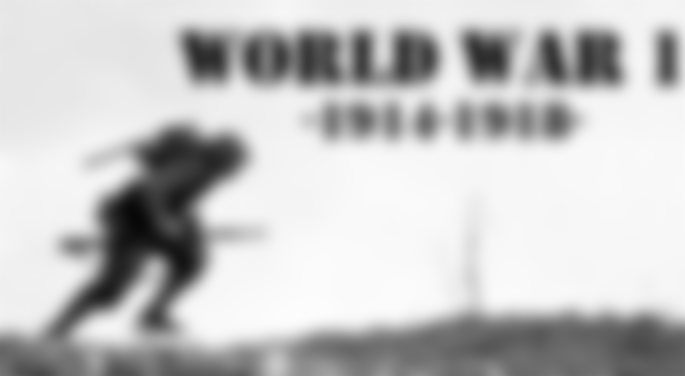
Life and conditions before the First World War (Balkans)
BEFORE JUNE 28, 1914
World War I began on 28 July
1914. It began on Slovenian soil,
it lasted until November
1918.
Before
Prior to that, countries had accumulated military force (as much as possible more advanced weapons, soldiers…). The situation was very tense, and reached boiling point after the Sarajevo assassination (Young Bosnia organization) Austrian Crown Prince Franz Ferdinand and his wife Sofia. Austria-Hungary wanted to send its own to Serbia police to investigate their deaths. Until then, it has Serbia agreed with everything Austria-Hungary wanted, at he opposed this decree. That was one of reasons for the outbreak of World War I. Before the war, people’s lives were simple, although tensions were growing and distrust due to tense conditions. Serbia and some other Balkan countries they got the idea of a united Slavic state (they were under Austro-Hungarian rule).
Organizations developed that further increased the unrest. There are no ordinary people in the war too worried, as the educated claimed that Europe would lose in a state of war raw materials after a few months. Science was harnessed to the war industry. Scientists have developed gas-chemical industry, which achieved great development in World War I and the turmoil

FRANC FERDINAND
with horrific effects on the battlefield. Movements have also begun in the area aviation, photography, and weapons, although the basic weapons were still military rifle. Women before the war did not go to work, did not have much freedom, and did not allowed to take part in excursions, go to shows, go to inns, smoke, visit cinemas, go to the store… They were dependent on men.In 1912 and 1913, two wars raged in the Balkans; first is the Balkans league (Serbia, Montenegro, Greece, Bulgaria) conquered Macedonia and most of Thrace, then Serbia, Montenegro, Greece and Bulgaria clashed with each other for conquest territory. The wars were an important precursor to World War I, as it was Austria-Hungary deeply concerned that Serbia had greatly increased its territory and gained new status in the region. Serbia's new position also worried Germany, which saw Serbia as a satellite Russia, so they were the two central powers after the Sarajevo assassination in June 1914 ready to risk war and set an ultimatum to Serbia.
Europe in the early 20th century did not know of any major war involving all the world’s superpowers since the fall of Napoleon, so the violence of World War I was a considerable surprise to most of the population at the time. The state of the world before 1914 is now called globalization. Trading worldwide has risen from one-thirteenth to one-third on the global profit-making scale. This mainly happened between 1800 and 1913. Between 1855 and 1914, investment increased 20 ×.
Europe was responsible for as much as two-thirds of world trade and an even larger share of world investment. Hundreds of thousands of workers from abroad worked in heavy industrial factories. British writer Norman Angell stated in his best-selling book in 1909 called The European Optical Illusion that fierce competition and the constant battle between leading companies was pointless. But the leaders of the British navy saw the interdependence of the German economy as a weakness that would be worth exploiting, and Germany chose war as an option, but only if it passed quickly.
At the end of the 19th and 20th centuries, Imperial Germany became one of the most important countries in Europe. The strength of Great Britain was already declining in the world's seas, and the United States, Japan, and increasingly Germany were successfully competing with it. The struggle for colonies became the main cause of disputes between (European) countries.
Each wanted to have as much of the world as possible and as large an empire as possible in order to consolidate its economic and political power in the world. Such a conquest policy is called imperialism by the wise.
Imperialism could be most basicly defined as a form of government that
based on military force. In the broadest sense, however, it can be the prolongation or expansion of the rule of one, usually a stronger politically state organism over another. In 1875, the greatest uprising broke out, which turned into a real war against the Turks in Bosnia and Herzegovina, and Serbia and Montenegro were encouraged in 1876.
Turkey declared war. Russia helped and was even more successful. Other countries feared that Russia had become too strong, so in 1878 they convened a congress to regulate the new borders in the Balkans. The Berlin Congress was formed, which designated Serbia, Montenegro and Romania as independent states. Serbia expanded its territory. Montenegro gained access to the sea. The Turkish state weakened (although it still had many possessions in Asia, S. Africa and the Balkans). In the first half of the 19th century, although a small part of its territory, the Greeks and Serbs were liberated. 7o years before the assassination in Serbia, a complete overhaul of industrial production, also called the second industrial evolution, began. The steam engine (except on the railway) was replaced by electric, petrol and diesel engines. A network of rail, road, telephone, telegraph and electricity has spread throughout Europe
drugstore. Along the lines grew industrial centers where they produced steel, hundreds of chemicals, tools and machines. Mass sales and production of everything began; from needles, to locomotives and weapons. The people were happy because they had a job and industrial and economic development seemed to be at its peak. Locomotives, factories…, swallowed a huge amount of raw materials and economic crises occurred several times. Some countries have begun to find that they are starting to run out of raw materials, while others have worried that they will try to take them away by force. Most of these raw materials originated from colonies in Africa, Asia, South America and Australia. The colonies were then crucial to the economies of the states. Germany, Italy, and Austria-Hungary possessed very few colonies. On the other hand, Britain and France had enough of them and the German Emperor Wilhelm II declared that Germany also deserved ‘its place under the sun’. They all anticipated what he intended and
preparations for war (a barrel of gunpowder) have begun.
Have a nice day


Wars are a terrible thing, and the reasons for them can be as bizarre, just like this one for the beginning of the World War I. I cannot understand that humans as intelligent beings cannot sit down and agree on the problems they have and solve them peacefully, but have to kill and burn houses and other property and leave only sorrow behind.